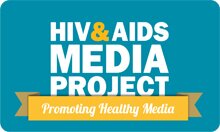1997: The Virodene controversy
In January 1997, three scientists from the University of Pretoria announced that they had found an antiretroviral drug — Virodene — that could cure AIDS, and requested R3.7-million in state funding to continue researching it. Then health minister, Nkosazana Dlamini-Zuma, circumvented accepted practice by allowing the researchers to address Cabinet with their preliminary findings that were neither controlled nor peer-reviewed. (See Pretoria scientists claim Aids breakthrough)
The main ingredient in Virodene is dimethylformamide, a toxic industrial solvent that is used in dry-cleaning, among other applications. The drug has since proved not to have any antiviral effects. Soon afterwards, the Medicines Control Council was effectively disbanded when its chairman and several other officials were fired, prompting speculation that the move was the result of the MCC's blocking of clinical trials of the drug. (See ANC rebuttal.)
In 2002, the Mail&Guardian revealed that the ANC "secretly arranged millions of rands in funding for Virodene". A memo written by the Virodene researchers, which was later retracted after it was revealed in court, earmarked a 6% shareholding for the ANC.
Miracle AIDS cure hits the South African press
In a February 1997 article, Miracle AIDS cure hits the South African press, published in the British Medical Journal, Pat Sidley reflects on the way the South African media portrayed the announcement of Virodene. The Johannesburg daily newspaper, The Star, used most of its front page, with elaborate colour illustrations of the virus and the new drug Virodene P058, to inform its readers of its discovery. The researchers, led by a laboratory technician, Olga Visser, her husband, Ziggy, and Dr Kallie Landauer, claim that while "playing around" in the laboratory with "strong antivirals, chemical compounds, rats' tissue and human cells" Olga Visser "noticed something funny happening." The compound she was fooling around with was killing the virus, she told a mass circulating Sunday newspaper, the Sunday Times. The news article was totally unquestioning.






